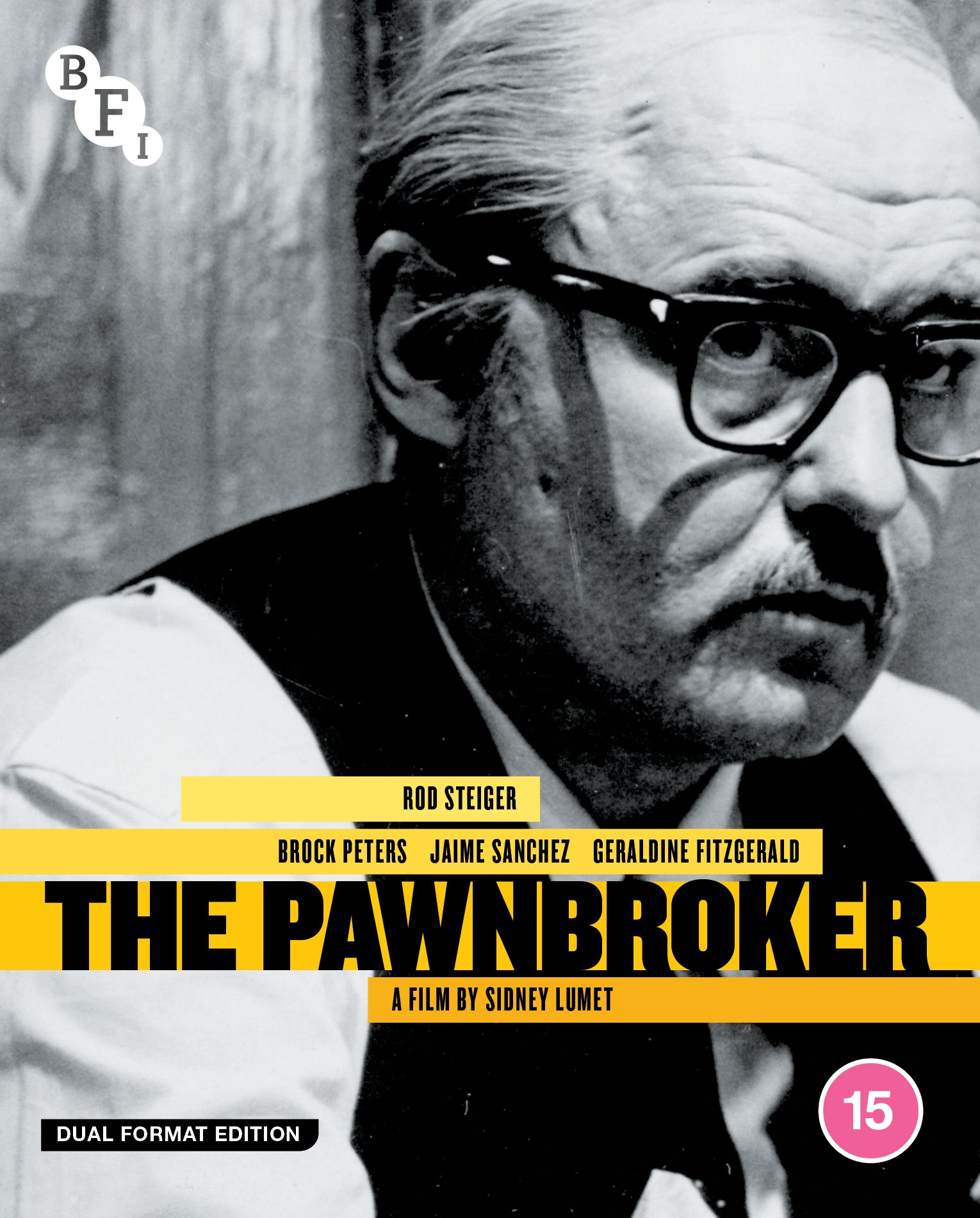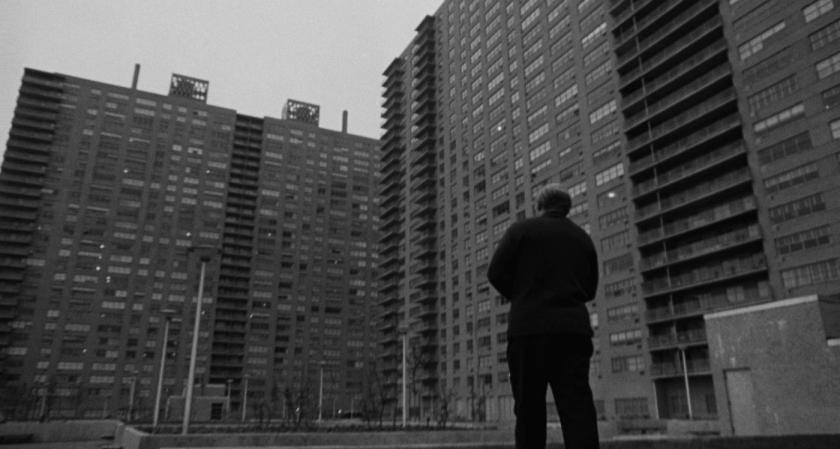The shadow of the Holocaust and the horror of the camps haunts literature and the cinema: from The Reader to The Night Porter, from Schindler’s List to Son of Saul. For some, the subject was beyond authentic representation – and perhaps only a poetic masterpiece such as Paul Celan’s “Death Fugue”, with its sombre and recurring images could come close to making the violence and tragedy in some way true.
Sydney Lumet’s The Pawnbroker, which tells the story of a camp survivor whose wife and children were murdered by the Nazis, manages the challenge through the very intense performance of the lead actor Rod Steiger. There are flashbacks, starting with an idyllic scene by a river, in which the happiness of Sol Nazerman and his family is evoked in in rhapsodic slow motion, and summoning, in his mind’s tortured eye, moments in which we share the survivor’s traumatic memories. The full impact of the violence is etched into Steiger’s face: the film, beyond its present-day narrative twists and turns, could be a representation of trauma therapy, in which Sol slowly moves from bitter numbness to the full expression of his pain. His mastery of the slow progression, a grim catharsis, come at times close to over-acting, Steiger possessed by his own skill rather than the soul of his character. Nevertheless, this is a great performance, heart-wrenching at times. In an NFT interview (audio only), a bonus to this new BFI Blu-ray edition of the film, Steiger claims this as the pinnacle of his acting career. In this role he shows that he can be much more than the brooding gangster in Kazan’s On the Waterfront.
 Sydney Lumet, a director in total control of his craft, makes the most of Steiger’s range: the portrayal of abject despair, survivor guilt, self-pity, anger, through revealing close-ups, stunningly framed and lit by his cinematographer, the great Boris Kaufman a refugee from Soviet Russia and the brother of documentary pioneer Dziga Vertov. There is hardly a frame in the film that’s not striking, and yet the relentlessness of the low-angle shots creates a stylised feel that does not always serve Steiger’s almost histrionic performance.
Sydney Lumet, a director in total control of his craft, makes the most of Steiger’s range: the portrayal of abject despair, survivor guilt, self-pity, anger, through revealing close-ups, stunningly framed and lit by his cinematographer, the great Boris Kaufman a refugee from Soviet Russia and the brother of documentary pioneer Dziga Vertov. There is hardly a frame in the film that’s not striking, and yet the relentlessness of the low-angle shots creates a stylised feel that does not always serve Steiger’s almost histrionic performance.
And yet, the film is also a work of social realism, with glorious overhead tracking shots in the busy avenue, overshadowed by the ominous “El”, the elevated railway, notably when Sol’s eager young assistant Ortiz (Jaime Sánchez) hurries along through the Latino and Afro-American throng. The bitterness of the story – which unfolds with unerring tragedy – is enhanced by its setting, working-class immigrant New York. Although Ortiz lives for the American dream, this is a world of pimps and gangsters: Sol Nazerman has traded the abyss of Nazi Germany and the camps for another kind of hell. Brock Peters plays the role of the man who runs this part of town, with a mixture of sleazy charm and menace.
This is a film graced with very touching performances – from Geraldine Fitzgerald, as Marylin, the woman who befriends Sol, and yet fails to heal his wounds, to the various shades of pathos brought to poignant life by a cast of skilled character actors. This is a very human film – one that brings to the screen a remarkable range of emotions, and to that extent, it is much more than a Holocaust movie: it still packs a punch almost 60 years since it was first released.















Add comment